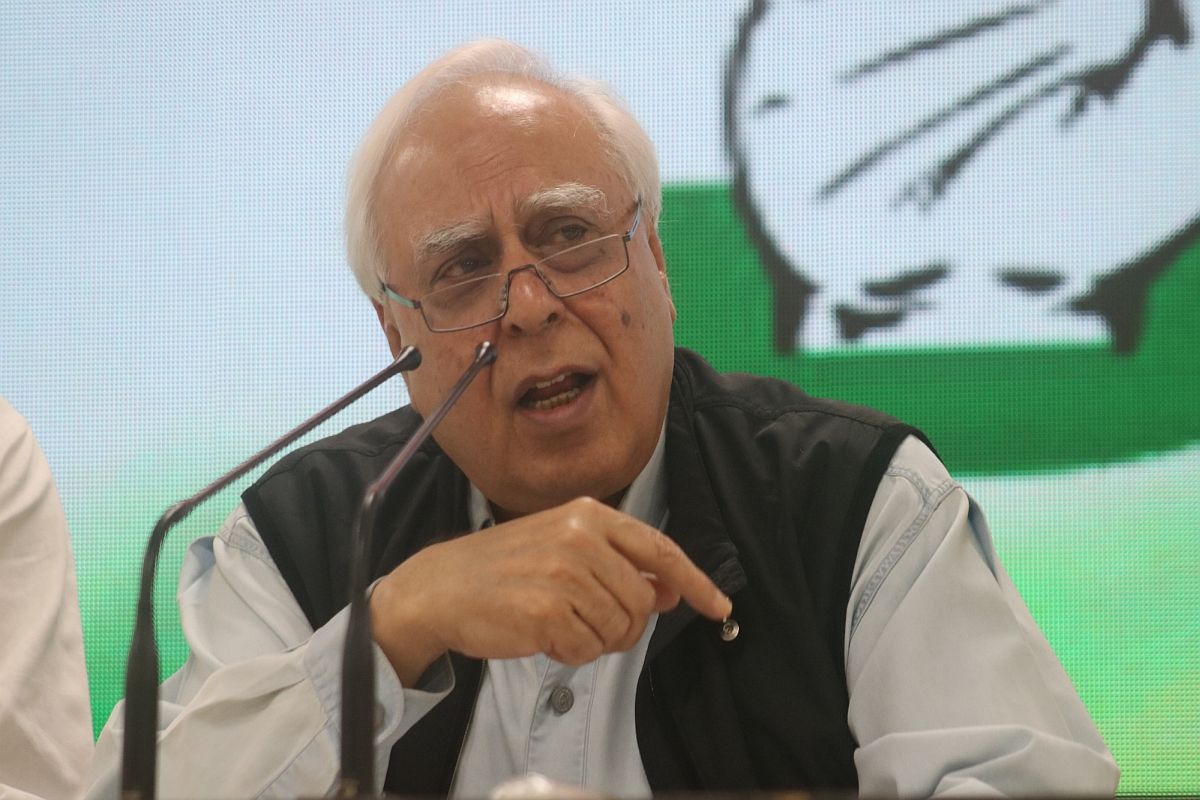No CAA, NRC or UCC in Bengal, vows CM
Chief Minister Mamata Banerjee said on Thursday that there will be no CAA, NRC or Uniform Civil Code in Bengal as these measures are intended to divide the country.
‘Basically what is being said is we won’t allow state-level officers to cooperate with Union of India. Practically, I don’t know if that’s possible. It’s a grey area,’ said Sibal.

Congress leader Kapil Sibal (File Photo: IANS)
Amid nationwide protests against the contentious Citizenship law (CAA) and the state of Kerala challenging the CAA before the Supreme Court seeking to declare the newly amended legislation unconstitutional, veteran Congress leader Kapil Sibal said on Saturday, there is no way a state can deny the implementation of the Citizenship Amendment Act (CAA) when it has already been passed by the Parliament and doing so would be “unconstitutional”.
Though today in a tweet today morning, he wrote, “ I believe the CAA is unconstitutional Every State Assembly has the constitutional right to pass a resolution and seek it’s withdrawal When and if the law is declared to be constitutional by the Supreme Court then it will be problematic to oppose it The fight must go on !”
I believe the CAA is unconstitutional
Advertisement
Every State Assembly has the constitutional right to pass a resolution and seek it’s withdrawal
When and if the law is declared to be constitutional by the Supreme Court then it will be problematic to oppose it
The fight must go on !
— Kapil Sibal (@KapilSibal) January 19, 2020
“If the CAA is passed, no state can say ‘I will not implement it’. It is not possible and is unconstitutional. You can oppose it, you can pass a resolution in the Assembly and ask the central government to withdraw it,” he said on Saturday.
Sibal, who was speaking at Kerala Literature Festival in Kozhikode said, “The states are sending a message to the central government that they are unhappy with the citizenship law, the National Register of Citizens and the National Population Register. But the NRC is based on National Population Register and that has to be implemented by a local registrar, who is appointed by state-level officers.”
“Basically what is being said is we won’t allow state-level officers to cooperate with Union of India. Practically, I don’t know if that’s possible. It’s a grey area,” said Sibal.
The SC senior lawyer urged Opposition parties to let Congress take charge in the fight against CAA.
News agency ANI quoted Sibal as saying, “When it’s about national politics, I think we all must stand together because this is a national legislation. So, we should not be scoring political points. What we need to do is politically come together… fight this battle and let the Congress (nationally) take charge.”
The anti-CAA protests were termed by the 71-year-old Sibal as a war between a “leader” and the “people of India”. He “thanked god” that a political party is not leading anti-CAA movement, rather it is headed by the “students, poor, and middle-class” of the country.
The Citizenship (Amendment) Act seeks to provide citizenship to Hindu, Sikh, Buddhist, Jain, Parsi and Christian communities who have faced religious persecution in Pakistan, Bangladesh, and Afghanistan and have arrived in India on or before December 31, 2014.
Besides Kerala and Delhi, protests have been witnessed across the country over the contentious law.
Violent protests had been reported earlier from across the nation as locals and students demonstrating against the Act clashed with the police.
Campuses too in India, be it the JNU OR Jamia Milia Islamia, have erupted in anger over the amended law with students from at least 15 universities taking on to the streets.
States of West Bengal, Kerala, Madhya Pradesh, Rajasthan, Andhra Pradesh, Maharashtra, Delhi, Punjab, Chhattisgarh have announced that they will not implement either the National Register of Citizens (NRC) or the Citizenship Amendment Act.
Meanwhile, the Union Cabinet has approved Rs 8,500 crore for updating the National Population Register (NPR), which is said to be the first step in implementing the National Register of Citizens (NRC).
West Bengal and Kerala are and Punjab are the states which have stopped the NPR procedures since they believe it is the first step for the contentious NRC.
Punjab government on Friday moved a resolution against the Citizenship Amendment Act (CAA) in the state assembly, becoming only the second state after Kerala to take a major move with regard to the contentious law.
Kerala became the first state to move a resolution against CAA demanding the scrapping of the controversial law.
On December 31, 2019, Kerala Assembly passed a resolution demanding the withdrawal of the Citizenship Amendment Act.
Advertisement